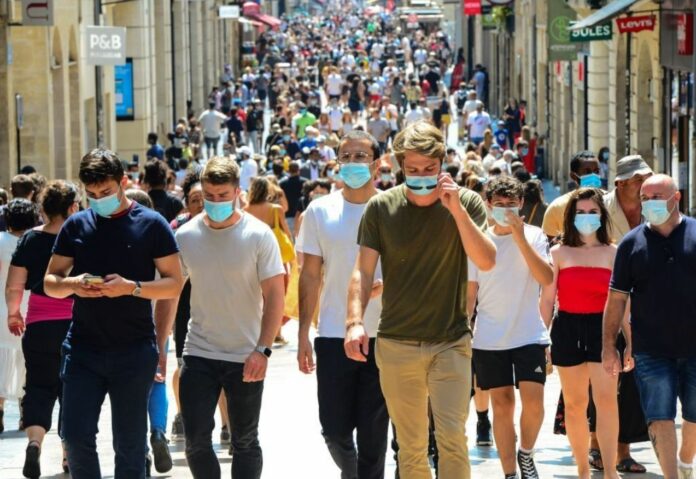A new study just published says that social interactions actually shape the composition of our microbiome but does it increase the risk of non-communicable diseases such as cardiovascular diseases, diabetes or cancer?
The human body is home to trillions of tiny microorganisms, collectively known as the microbiome, which plays a vital role in maintaining our overall health.
From supporting the functioning of our immune and digestive systems to influence our mood and mental well-being, the importance of these microscopic inhabitants cannot be understated.
Despite this, there is still a lack of knowledge on how the bacteria and microbes that make up the microbiome are acquired and transmitted among individuals.
In an effort to fill this knowledge gap, an international study was conducted by a research group led by Nicola Segata of the University of Trento’s Department of Cellular, Computational and Integrative Biology-Cibio and the European Institute of Oncology, aimed at uncovering the mechanisms of acquisition of health-associated bacteria.
An international team of scientists from 18 institutions and research centers around the globe collaborated on a study, the results of which were published in the esteemed journal Nature.
The lead author of the study, Mireia Valles-Colomer, a postdoctoral researcher at UniTrento’s Segata Lab, spearheaded the largest and most diverse examination of the transmission of the human microbiome to date.
The study delved into the mechanisms of transmission of bacteria between generations, known as vertical transmission, as well as among individuals in close proximity such as partners, children, and friends, referred to as horizontal transmission.
To gain a comprehensive understanding of the transmission of the human microbiome, the team analyzed more than 9,000 stool and saliva samples from participants located in 20 countries spanning all continents.
The study yielded several key findings, including the confirmation that the initial transmission of the gut microbiome occurs at birth and is long-lasting. Remarkably, the researchers found that bacteria from the maternal microbiome can still be detected in elderly individuals.
However, infants were observed to lack many of the bacterial species commonly found in adults, leading the authors to theorize that these species are acquired later in life. The analysis also revealed that adults acquire microbes through social interactions, such as through contact with partners, sharing a household, or interactions with friends.
Another surprising finding was that the transmission of the oral microbiome differs greatly from that of the gut microbiome. Salivary bacteria are really spread more widely than previously thought, especially via horizontal contact.
The mother doesn’t pass on many bacteria at birth, but the more time people spend together, the more bacteria they share.
Mireia Valles-Colomer, who studied the spread of more than 800 different bacterial species, said: “We have found evidence of extensive sharing of the gut and oral microbiome linked to the type of relationship and lifestyle.”
The findings imply that social interactions do in fact affect the makeup of our microbiomes. They also found that some bacteria are passed on much more often than others, especially those that do better outside of our bodies.
“Some of these are microbes from which we know very little, they have not even been named yet! This inspires us to study them better, as we still have many unanswered questions about the transmission mechanisms of the microbiome and how this affects our health.”
As Nicola Segata elaborated: “In adulthood, the sources of our microbiomes are mostly the people we are in close contact with.”
The number of bacteria exchanged is roughly related to how long people interact with each other, like when students or couples share an apartment. However, in many instances, bacteria may transmit even between people who only occasionally or barely contact.
“The transmission of the microbiome has important implications for our health” says Segata, adding, “since some non-communicable diseases (such as cardiovascular diseases, diabetes or cancer) are partly linked to an altered composition of the microbiome.
The findings that the human microbiome is transmissible may imply that some of these diseases (now termed non-communicable) may be communicable to some degree.
“Further studies on the transmission of the microbiome can therefore advance the understanding of the risk factors of these diseases and, in the future, explore the possibility of reducing the risk with therapies that act on the microbiome or its transmissible components.”
Source: 10.1038/s41586-022-05620-1
Image Credit: MEHDI FEDOUACH/AFP via Getty Images
